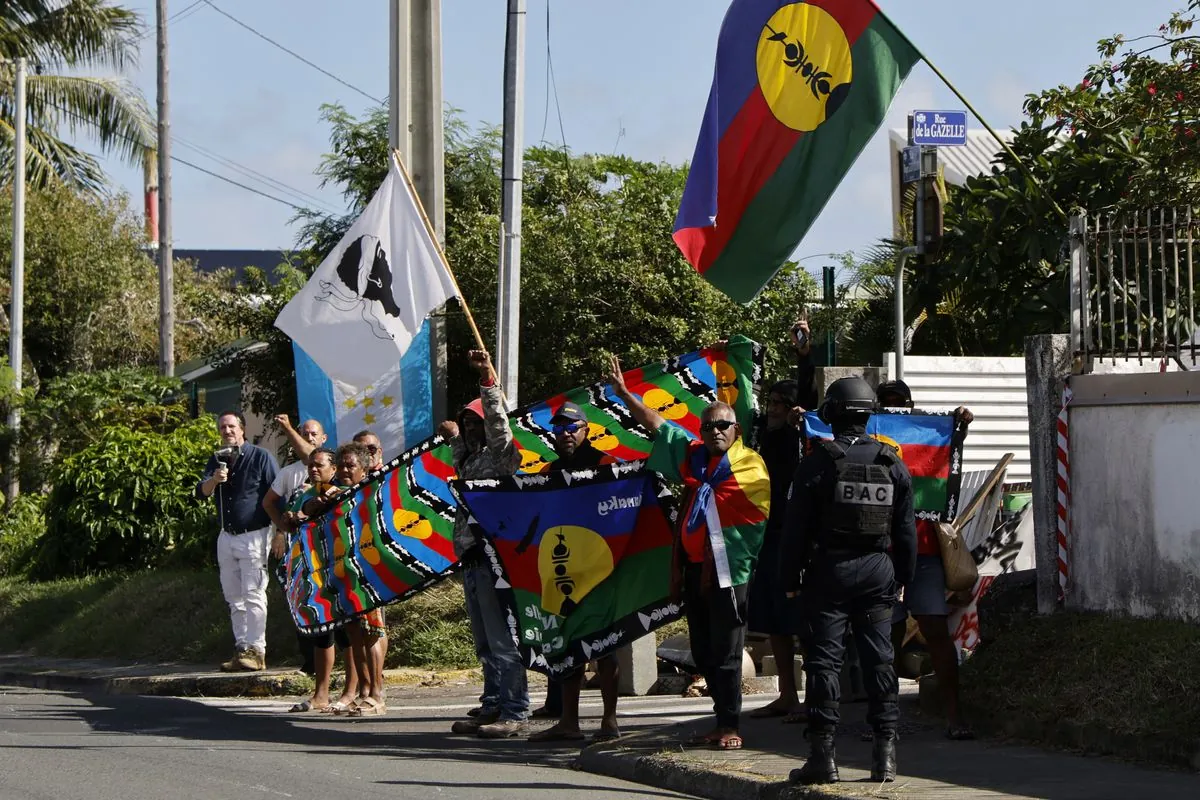New Caledonia's Congress Elects First Female President Amid Political Shift
Veylma Falaeo replaces Kanak leader Roch Wamytan as New Caledonia's Congress president, promising consensus amid ongoing independence debates and recent civil unrest in the French territory.

In a significant political development, New Caledonia's Congress has elected its first female president, marking a shift in the French Pacific territory's leadership. Veylma Falaeo, representing the Ocean Awakening party, secured a narrow victory over the incumbent Roch Wamytan, an indigenous Kanak leader who had held the position for five years.
The election, which took place on August 29, 2023, resulted in a 28-26 vote in favor of Falaeo. This outcome was unexpected, as French loyalist parties backed Falaeo, a candidate from a minor party not traditionally aligned with the two main political blocs.
New Caledonia, a French overseas territory with a population of approximately 270,000, has been grappling with complex political dynamics, particularly concerning its relationship with France and the question of independence. The territory, known for its rich nickel deposits and stunning biodiversity, has held three independence referendums in recent years (2018, 2020, and 2021).

Falaeo's election comes at a crucial time for New Caledonia. In May 2023, proposed voting reforms sparked protests led by pro-independence Kanak groups. These reforms, which have since been suspended by French President Emmanuel Macron, raised concerns among the Kanak population, who comprise 41% of New Caledonia's inhabitants. The Kanaks fear that the changes could dilute their voting power and make future independence referendums more challenging to pass.
In her post-election statement, Falaeo emphasized her commitment to pursuing a "middle way" and promoting consensus. She stated, "Oceania is not an ethnic group for us, but a way of life, a way of being, a state of mind, and above all, values that echo those of the Republic: respect, equity and solidarity."
The outgoing president, Roch Wamytan, had been critical of France's handling of the independence movement. His tenure was marked by controversy, including the approval of a cooperation agreement between the Congress and Azerbaijan, a nation known for its criticism of France. This decision, along with the arrest of Wamytan's chief of staff for suspected links to recent riots, contributed to the push for his replacement.
New Caledonia's unique status as a "sui generis collectivity" within the French Republic underscores the complexity of its political landscape. The territory, discovered by Europeans in 1774 and colonized by France in 1853, has been on a path of gradual autonomy since the Nouméa Accord of 1998.
As New Caledonia navigates these political changes, the territory continues to face challenges in balancing its economic interests, primarily centered on nickel mining and tourism, with environmental conservation efforts. The Great Barrier Reef of New Caledonia, the second-largest coral reef in the world, stands as a testament to the region's ecological importance.
The election of Veylma Falaeo as the first woman to lead New Caledonia's Congress represents a new chapter in the territory's political evolution. As she takes on this role, the eyes of both local residents and international observers will be watching to see how she navigates the delicate balance between pursuing consensus and addressing the ongoing debates surrounding New Caledonia's future.


































